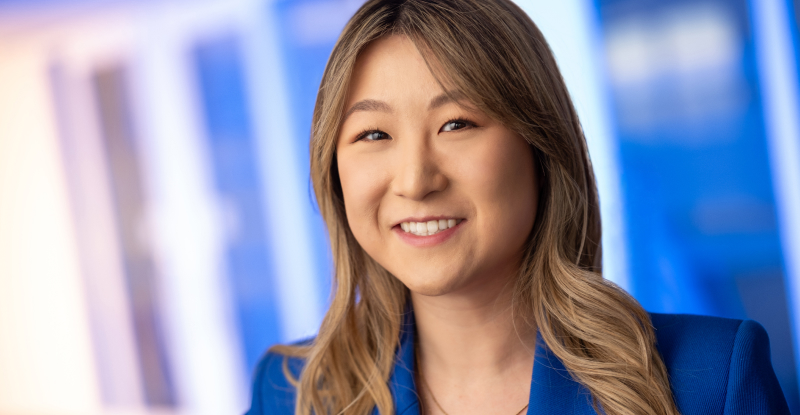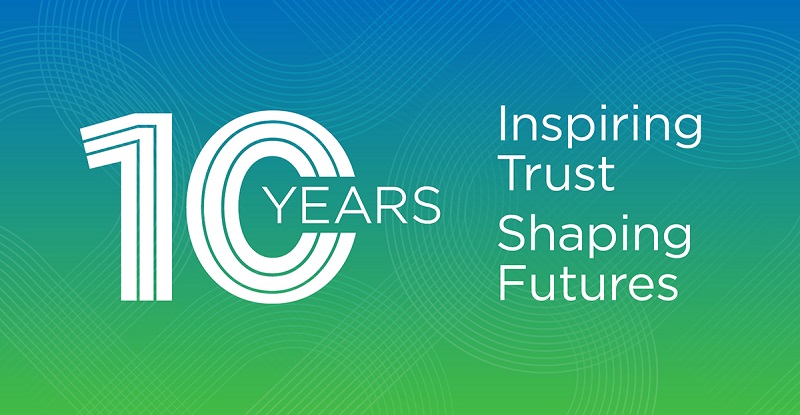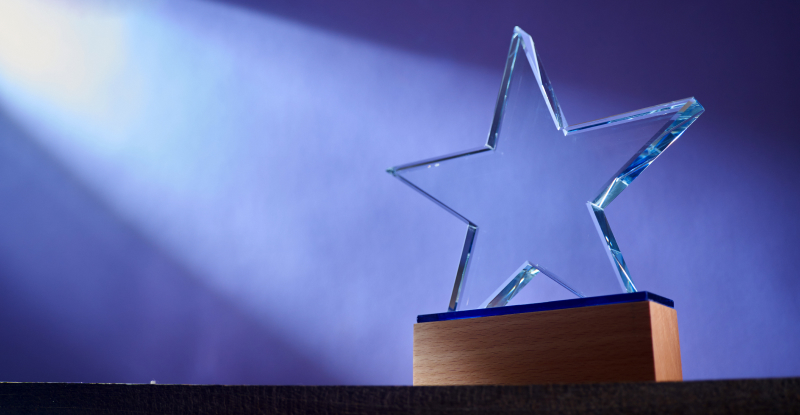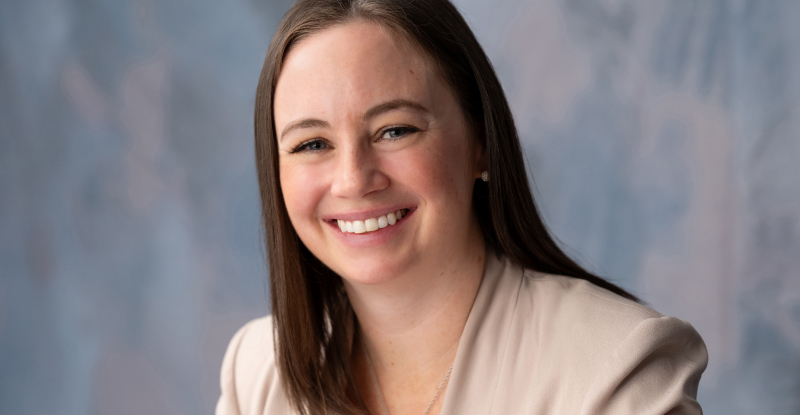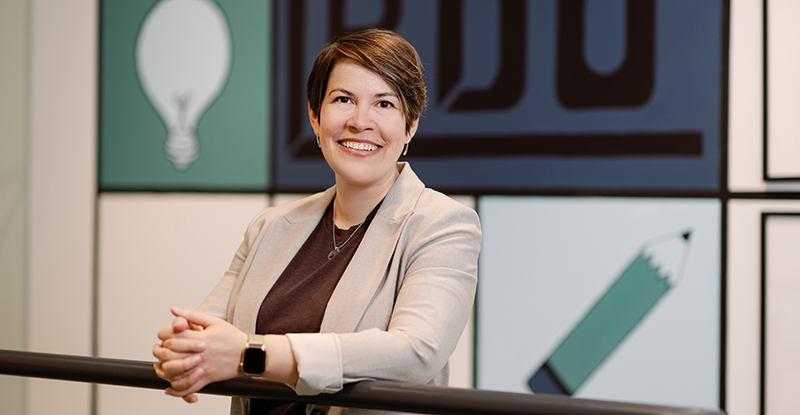
In this podcast episode, Michelle McRae, managing editor of CPABC in Focus magazine for CPABC, chats with Emily Heinrich, CPA, CPA (Oregon), about what it means to bring your whole self to work. Emily is a partner in US corporate tax with BDO in Vancouver, the Pride at BDO Pillar Lead for the firm’s National DEI Advisory Council, and a proud member of the 2SLGBTQIA+ community.
The following article is based on this episode of the Coffee Chats with CPABC podcast series.
You've worked in a number of North American cities. Would you say that your career in accounting has given you both a sense of structure and a chance for adventure?
Emily: Absolutely. Over the course of an 18-year career, I feel like I've done so many different things and lived many different lives. I started my career as an auditor in New York City. That was so incredible because there were interns from all over the US who came, and we all did this experience together. And it was a very interesting first chapter for a girl from Florida who really had never even been in a big city before.
And then I started my first full-time role in Portland, Oregon, in tax. That was a very different setting and a very different chapter as well. And from there, I ended up spending two years in Washington, D.C., in PwC's National Tax Services Office, where I took part in a tour of duty program that was aimed at accelerating the careers of high-performing senior associates. It was such an extraordinary experience—I got to work alongside the firm's top leaders and got a glimpse into the inner workings of the US government.
After that, I moved back to Portland and began specializing in state and local tax. Then I pivoted again back into federal tax and started specializing in income tax provisions, which is something that I'm still passionate about today.
What brought you to Vancouver in 2017?
Emily: I didn't have any plans of becoming a Canadian until I met my wife in 2016. She was visiting Portland for a long weekend, and we matched on a dating app and started chatting and quickly realized that we had a connection that was pretty special. She’s a university professor, so her job was really locked into Vancouver.
Fortunately, I found that my career was surprisingly portable, and I moved to Vancouver about a year after we started dating. I had no idea there was such a strong demand for US tax professionals in Canada before that. It wasn't a part of my original life plan, but I couldn't be happier with how things have turned out. This is a fantastic city to live, work, and raise our family of two small humans and three cats.
What excites you most about your work now?
Emily: I started my career in public accounting based on an interest in debits and credits, but my interests today are really centered around the people side of the business. I'm so honoured and humbled to lead exceptional teams here at BDO and be a part of some really exciting programs.
In addition to leading an awesome team of tax professionals in Vancouver and serving as co-lead of the Pride at BDO Pillar on the National DEI Advisory Council, I've also recently taken on another role as a member of the BDO coach faculty. BDO has made a huge investment in creating an exceptional coaching culture, and we're still in the process of rolling it out firmwide. I'm so excited to be a part of it and get to really learn how to be a coach.
How would you describe your work culture?
Emily: It sounds really cliche, but I love the people at BDO. I found wonderful people at every firm, but the culture at BDO is uniquely kind, open, and warm. And I feel appreciated for who I am and what I bring to the organization. It's a really nice feeling. And it allows me to lead with my values and trust that I have the support of my team to do so.
You mentioned earlier that you had a chance to work with various leaders when you were working with PwC. What did you learn from those experiences that informs you as a leader now?
Emily: Working at the National Tax Office of PwC was such an interesting experience because I worked with partners in every stage of their career development. It was the first time that I saw that even after you make partner, there is so much room for growth and that it was not an end destination, but just a new beginning. I realized that the more seasoned partners provided a much more calm and steady presence.
They weren’t reactive. So when I made partner, I tried from the get-go to be the calm and steady leader. That's what I really aim to do for my people—to support them, coach them, protect them, and make sure that they are in a thriving environment.
Has your approach to leadership evolved?
Emily: There was a time when I thought professionalism meant leaving the person at the door, and I wasn't able to form meaningful relationships at work or connect my personal and professional values because I was holding back parts of myself. Now I operate from a place of full honesty and integrity, no matter how uncomfortable that might be. It's allowed me to form deeper relationships with my colleagues and spend more energy on things that truly matter.
At the end of the day, you know we're all real people with full lives, and I prefer to acknowledge that and come to work every day as my fullest and best self. And I encourage all of my people to come to work the same way. From there, trust can be fostered. My primary concern is to foster the well-being and development of my team.
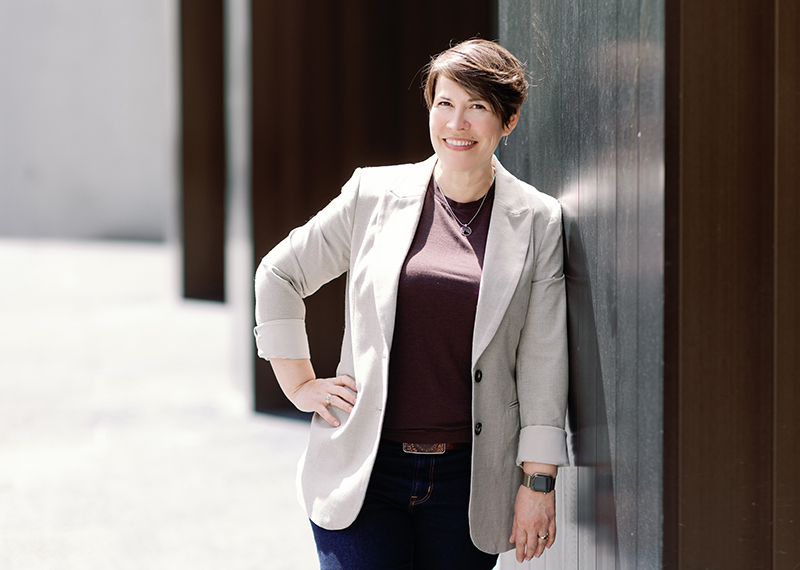
Have you seen the business environment become more diverse, equitable, and inclusive during the course of your career? And/or do you still think there's a long way to go?
Emily: It really has changed a lot over the course of my career. We used to have these presentations when I first started in public accounting on how to dress for women and how to dress for men. It was all about conforming to traditional expectations, which were very gender-oriented. And if we're honest, it was a male-dominated culture.
Today, the professional environment is so much more flexible and welcoming of diversity, and we want people to show up as themselves and bring their unique contributions to the team. I think there's still a long way to go to get to true equality, but we have come so far.
What would you say to those who think DEI initiatives aren’t really necessary—who think, “We have equality. Why do we need these initiatives?”
Emily: We need DEI programs to further our progress. If we keep doing things the same way we’ve always done, we're going to continue to get the same outcomes we always have. And there are so many well-documented examples of inequity in our world and also tons of well-researched reasons why DEI brings value and profit to organizations. At the end of the day, it's just the right thing to do. I care about people, and I want every person to have opportunity and feel included and appreciated.
What does your role as the Pride at BDO co-pillar on the National DEI Advisory Council entail?
Emily: My co-lead and I get together with the other pillar leads and a few other folks in the organization and create the strategy for our firm's DEI journey. Some of the conversations can be difficult, and it's frustrating to see the pace of progress, but on the other hand, we've made huge strides over the past two years, and I am really proud of what we've accomplished. It’s really motivating and inspiring.
I also helped form the Vancouver DEI committee, which brings a local presence to these national initiatives. It's so cool to see the local impact of these national initiatives and bring it all together and see how much people appreciate it, and they do.
You’ve served on the Sierra Club Canada Foundation for five years. Do you see a correlation between your DEI work and your environmental work?
Emily: Absolutely. It's all connected. I've always cared about environmental issues, but it was during my journey toward finding my authenticity and living my values, which happened about eight years ago, that I started really getting back to my roots and my passion for environmental protection.
Our society is so good at compartmentalizing our various values and priorities and ignoring the conflicts that exist between what we believe in our hearts and how we act in the world. I lived in this disintegrated state for many years, and it led me to disconnection, anxiety, and frankly, burnout. Having integrity—what that really meant for me is bringing together how I act and what I really feel in my heart. And that is what has led me to re-engage in work in a different way. It all comes from the same place of caring about people and animals and the planet and wanting us all to do better.
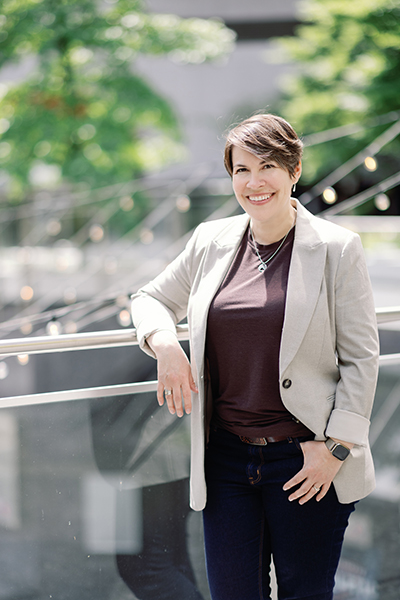 Do you have any last thoughts on what integrity means for you?
Do you have any last thoughts on what integrity means for you?
Emily: It means continuing to speak up even if you are scared and uncomfortable to do so. I have to say that at the beginning of my journey in doing this, it was really terrifying, and I didn't know if I could do it. I didn't want to have to come out to anyone, to be honest. But I also didn't want to lie. And having to have really uncomfortable conversations at work over and over… it inspired something inside of me. I just really wanted to be honest and say what I really thought. And the more I did that, the more empowered I became and the more I started speaking up in other places, too.
There is power in living authentically.
Emily: Exactly. I think there is such a power in being true to yourself. If somebody makes an assumption and says something to me about, "Oh, your husband this or that or the other thing," it doesn't really matter if I let it slide, especially if I'm not going to see that person again. But I think when you let things slide, it creates something inside that leads to bad things.
With my teenage daughter we talk about it “filling up a trash can inside of you.” So I don't care how unnecessary or uncomfortable it's going to make the situation—I can't let things slide anymore. In this process of speaking up, I became somebody that I could rely on—I believe in myself now, and that's more important to me than letting something go. I think it's so important to have respect for yourself.
It sounds like every time you stand up for yourself you build that sense within yourself of who you are.
Emily: Absolutely. I think that a lot of people have had the experience of getting to a point in their life where they just feel so sick of the work that goes into hiding. And there's an anger there too. And when you let that out and take that ownership and become someone you can respect, it is life-changing and admirable.
Would you say you’re focused on embodying integrity and authenticity for your team?
Emily: I do try to be that person that I could have used to look up to when I was starting my journey. That’s one of the main reasons that I'm not just out—I am out as loudly as I possibly can be because I want to signal to anybody who's looking for support or a safe person to talk to that I'm here and I'm happy to support them.
Thank you so much for sharing your insights and for your ongoing efforts to empower others.
Emily is also featured in the July/August 2024 issue of CPABC in Focus.
More on EDI
In the podcast episode “Allyship and Action: Advancing EDI in the Workplace,” Amy Lam, FCPA, FCA, CPABC’s EVP of corporate services and CFO, talks with Paula Presta, CPA, CA, about advancing EDI in corporate Canada. Paula is a partner at KPMG Private Enterprise in Kamloops and a member of KPMG’s National Executive Inclusion, Diversity, and Equity Council. You can find highlights of the episode here.
Michelle McRae is the managing editor of "CPABC in Focus" magazine.
